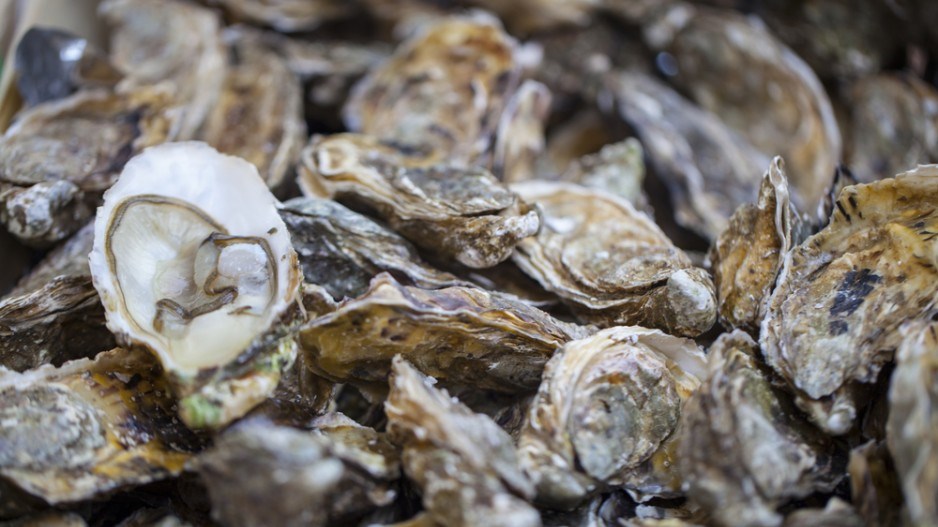Oyster farmers on Vancouver Island, who have endured several difficult years, have this season taken advantage of a provincial fund designed to help stabilize the industry.
More than 100 oyster farmers have accessed funding from the $1.3-million B.C. Oyster Recovery Fund this year, which should give them short-term relief.
“It has been a tough couple of years because of different scenarios, so this really helps the industry and companies to help build up inventory, so a year from now we have more product to sell,” said Brian Yip, general manager of Fanny Bay Oysters, which farms mainly on Vancouver Island and Denman Island.
The issues facing the industry have included changing ocean temperatures, higher acidity levels in the water and outbreaks of norovirus that closed some farms over the past three years.
At the time, despite being localized to a few areas, the outbreaks and farm closings led to the perception that people shouldn’t eat B.C. oysters at all, which led to a significant sales drop, said the B.C. Shellfish Growers Association.
“It’s hard to say what our problems are in just an hour or two,” said Yip with a laugh. “We got hit in all directions.”
However, things in 2019 appear to be promising.
“It is looking a whole lot better this year,” Yip said, noting the government help has helped brighten their outlook. “If you don’t have any seed, you don’t have any final product.”
The funding was used by farmers to replenish their stocks.
Farmers each received up to $10,000 from the fund to restock their beds with oyster seed. Restocking supports ongoing oyster production, as well as employment and economic activity in many oyster-farming communities.
In total, farmers used $860,000 in oyster seed support.
A third of the farms that opted into the program are in Baynes Sound, with others near Cortes Island, Okeover Inlet, Lemmens Inlet, Barkley Sound and Nanoose Bay.
“The Oyster Recovery Fund was seen as a positive step and concrete action toward recognizing the value of the shellfish industry by [Agriculture Minister Lana] Popham and the B.C. government,” said Erin Latham of K’awat’si Shellfish.
“As a new shellfish farm and as a new business of the Gwa’sala-’Nakwaxda’xw First Nation, K’awat’si Shellfish is also developing a research program, as well as improving transportation to get our GwiGwi oysters to the local B.C. seafood market.”
In addition to helping re-seed the stock, the fund will support research into marine norovirus.
In 2017, the oyster harvest totalled 7,700 tonnes and oyster sales generated $29 million in wholesale value. In 2016, the oyster harvest was 9,300 tonnes.




